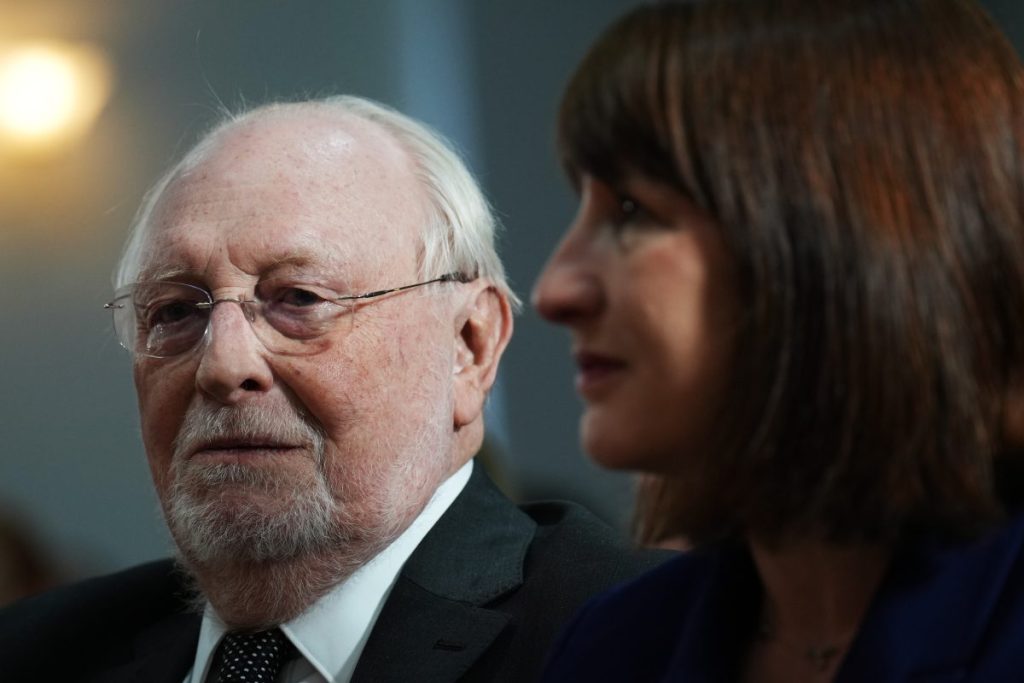
Monday 07 July 2025 6:10 pm

That “millionaires don’t need all that money” misses the point. Wealth taxes hurt us all, writes Callum Price
Neil Kinnock knows a thing or two about the Far Left. His time as leader of the Labour Party (1983 – 1992) was overshadowed by frequent clashes with what we would now call the Corbynite wing of the movement. Kinnock must know better than probably anyone else in the country that one cannot deal with these people by meeting them half-way.
Which makes it all the more surprising that it is Kinnock, of all people, who is now responding to the potential electoral threat from a new socialist party – led by Jeremy Corbyn and Zarah Sultana – by reviving the political zombie of the wealth tax.
Wealth taxes were once a fairly common form of taxation. In the mid-1990s, a dozen OECD countries still had some variant of such a tax. But they then fell out of favour, and were quietly dropped in country after country. Today, the only major economies that still have wealth taxes are Spain, Norway and Switzerland. In Norway, the wealth tax only accounts for a little over one per cent of total tax revenue; in Spain, it is not even half that. Switzerland is the only country where the wealth tax is a major source of revenue (a little over four per cent of the total). But Switzerland also has one of the lowest tax burdens in Europe overall, and a very investment-friendly tax system. They get so many other things right, they can get away with this one populist gimmick.
What’s so bad about wealth taxes?
For a start, they are much more administratively complex and bureaucratic than most other taxes. Let’s compare them to income taxes and consumption taxes. If you want to tax incomes, you have to know how much people earn, and if you want to tax consumption, you have to know how much consumer goods cost. The former is specified in people’s employment contracts, and the latter is printed on the price tags. Wealth, on the other hand, has to be specifically assessed and appraised, which is a burdensome process, especially for assets that are not frequently traded.
Wealth also fluctuates all the time. By the time you read this, your income, and the price of most of the things you buy, is probably still about the same as it was at the time of writing, but the value of your pension fund or property (if you have any) almost certainly no longer is. One consequence of this complexity is that much of the revenue raised by a wealth tax is immediately swallowed up by the tax bureaucracy.
Wealth taxes impede the formation of capital
Supporters of wealth taxes often argue that the people who pay them do not really “need” the money anyway. This misses the point. Suppose you own assets worth £10,001,000, i.e. £10m plus £1,000. Neil Kinnock’s version of the wealth tax has a tax rate of two per cent, and a tax-free allowance of £10m, so you would pay a wealth tax of two per cent on those extra £1,000 above the allowance. Thus, your wealth tax bill would come to £20. Not exactly onerous, is it? You would still be a very rich person. It won’t drive you to the food bank.
But here’s another way of looking at it. If you make a three per cent return on those £1,000 (i.e. £30), a wealth tax of two per cent on them is equivalent to a tax of 66 per cent on those returns. It won’t impoverish you, sure, and it will not make you liquidate your £10m asset portfolio either. But would you bother trying to grow your asset portfolio much beyond the £10m you already have? Or would you rather consume more now, and save less for the future?
This is one way in which wealth taxes impede the formation of capital.
So far, we have only looked at the domestic consequences. We have not even touched upon the subject of capital flight yet, although we know that that has historically been a side-effect of wealth taxes, and one reason why they have fallen out of favour. Britain has already seen an uptick in the number of wealthy people emigrating, and a wealth tax would only exacerbate that trend.
If the government is concerned about wealth inequality, there is a much simpler way to address that issue: build more houses. That would effectively “redistribute” property wealth, while growing the pie at the same time. Don’t tax wealth – multiply it.
Callum Price is director of communications at the Institute of Economic Affairs (IEA)








